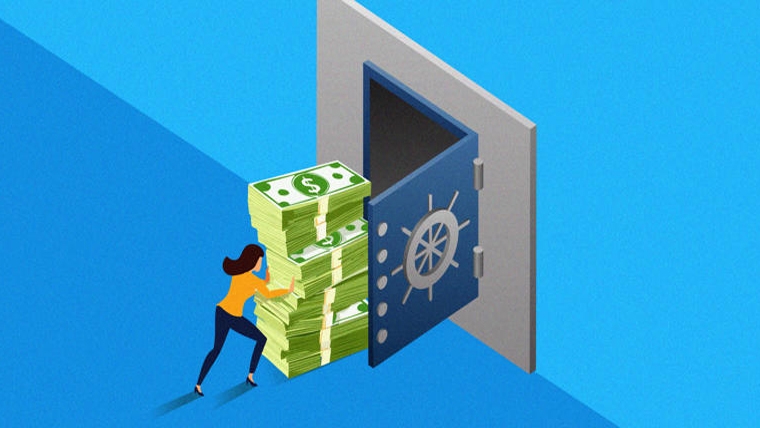
When I started my Money Mentalist journey, and was working with my mentor David Krueger, one of our sessions was on different types of spending. This was a complete revelation to me, I thought we just spent money, it was a simple as that.
It was then that I first heard the term ‘revenge spending’.
The examples often came from relationships. Here’s one of them: The couple have an argument; she grabs the credit card and heads out the door to go shopping. He heads to the pub with his mates and buys a few rounds.
Fast forward to more recent times where many of us have experienced dramatic shifts in how we handle money. Periods of restriction, uncertainty, and rising costs have created emotional whiplash in our spending and saving habits.
Revenge spending has had a bit of a resurgence, in a whole new way. It’s been described as the urge to spend freely after a time of constraint. Think of the holiday you booked the moment borders reopened, or the little luxuries you started saying yes to because life suddenly felt too short to keep saying no.
Fundamentally, revenge spending was never about being careless; it was completely emotional. The relationship rollercoaster, or after months or even years of cancelled plans and financial stress, spending became a way to reclaim joy and freedom. It wasn’t about the purchases themselves; it was about the feeling of taking control again.
But as the excitement faded and the financial reality of higher prices, mortgage rates, and economic uncertainty set in, many people found themselves swinging in the opposite direction. The instinct now? To save; and save hard.
That’s where revenge Saving comes in.
It’s a response to the guilt, fear, or anxiety that can follow periods of overspending. People cut back sharply, commit to no-spend challenges, or take pride in buying “only the essentials.” On the surface, it looks disciplined, even admirable. But beneath it lies something deeply psychological: the need to feel safe and in control again.
I can understand this emotional response, but bear in mind, sometimes we behave in this way for a different reason; for me, it was about self-preservation and getting myself out of the financial mess I had got myself into. We have to pull back hard on spending, to reduce debt before we can even think about saving again. But, once you have stabilised your financial situation, you allow yourself more spending freedom.
Revenge saving feels good when life feels unpredictable, our brains crave certainty. Saving money offers that sense of stability.
Watching your balance grow delivers a small but satisfying hit of dopamine, (this is the same dopamine feeling we get when we spend) it feels productive and secure, like proof that you’re “doing the right thing.”
That emotional reward makes saving feel powerful. But when the motivation is fear, fear of losing control, of running out, or of repeating past mistakes, saving can quietly shift from healthy to rigid.
This is what psychologists call a scarcity mindset: the deep belief that there will never be enough, no matter how much you have. It can make you anxious about spending, even when you can afford to. You might feel guilty for buying something nice or stressed about dipping into your savings, as if safety depends on constantly holding back.
In small doses, that vigilance can be helpful. But over time, it can drain your joy and limit your ability to enjoy the life you’re working so hard to build.
The revenge spending narrative is the internal voice that says, “I deserve it” On the other hand, revenge saving is more about self-criticism. It’s the internal voice that says, “I was irresponsible,” or “I need to make up for what I spent.”
That guilt can drive extreme behaviour, cancelling small pleasures, overanalyzing every purchase, or judging yourself for not saving enough. It’s the financial version of a crash diet: the intention is good, but the approach is unsustainable.
The problem is that shame doesn’t create long-term change. It might motivate action for a while, but eventually it leads to burnout or backlash, often in the form of another round of emotional spending. The cycle repeats, and each time, the guilt gets louder.
If you want to see the results of extreme behaviour, have a look at the Netflix Documentary on The Biggest Loser, they are revisiting some of the winners and contestants to see where they are now and how they felt about their experience on the show. This is totally relatable to financial behaviour as well.
How do you break the cycle.? As with most behaviour change it starts with awareness. Ask yourself:
- Am I saving because it supports my goals, or because I’m scared?
- Does this approach make me feel secure — or restricted?
- Am I denying myself small joys that genuinely add value to my life?
Healthy saving comes from alignment, not anxiety. It’s about being intentional, saving for what matters, not just against what might go wrong.
You can build good habits without swinging to extremes. Automate your savings so it happens quietly in the background. Keep a small “fun fund” for guilt-free spending. Allow yourself to invest in experiences and relationships that make life meaningful.
Because saving isn’t about hoarding, it’s about creating space and choices for your future self.
At its core, both revenge spending and revenge saving are about trust, or rather, the loss of it. When you’ve overspent or struggled financially, it’s easy to stop trusting yourself with money. You clamp down tightly, believing that discipline is the only way to stay safe.
But real financial security isn’t about control, it’s about confidence. It’s knowing you can make thoughtful choices, adapt when things change, and forgive yourself when you don’t get it perfect.
That’s the heart of money psychology: understanding that your emotions around money aren’t mistakes. They’re messages. When you listen to them, you can move from reacting to responding, from fear to freedom.
When David explained this to me, it was huge, it enabled me to shift my thinking and my behaviour with money. I went from being careless, and thoughtless with my finances to being careful and considering the options and consequences of my decisions. It was a gamechanger for me.
If you find yourself in revenge-saving mode, take a breath. You don’t have to prove anything by saving harder. You just need to rebuild trust, with your money, and with yourself.
Because the healthiest relationship with money isn’t measured by how much you save. It’s measured by how safe, balanced, and confident you feel along the way.
*Lynda Moore is a Money Mentalist coach and New Zealand’s only certified New Money Story® mentor. Lynda helps you understand why you do the things you do with your money, when we all know we should spend less than we earn. You can contact her here.

We welcome your comments below. If you are not already registered, please register to comment
Remember we welcome robust, respectful and insightful debate. We don't welcome abusive or defamatory comments and will de-register those repeatedly making such comments. Our current comment policy is here.